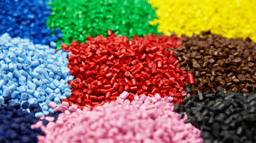Call for papers: Biodegradation of plastics
Published in Earth & Environment

Explore the Research

Biodegradation of plastics
This Collection seeks original research into plastic biodegradation with a particular emphasis on enzyme engineering and microbial engineering
Collection Overview
Scientific Reports has launched a Guest-Edited Collection on Biodegradation of plastics.
Plastic accumulation poses both environmental and health challenges, yet conventional mechanical recycling has limited efficiency for plastics as it can compromise physical properties of the materials during processing. Recent industrial-scale implementations of enzymatic recycling for polyethylene terephthalate offer a more sustainable alternative to overcome the plastic challenge, by selective, energy-efficient biodegradation under mild conditions.
This will be a Collection of original research papers and will be open for submissions from all authors – on the condition that the manuscripts fall within the scope of the Collection and of Scientific Reports more generally. We are welcoming submissions until 25th March 2026.
Why is this Collection important?
"Plastics are integrated into all aspects of our life and causing both good and bad socioeconomic impacts on society in general. It is important to understand and possibly develop mitigating steps to avoid future disaster from happening. The topics(i) Socioeconomic impact of plastic pollution, (ii) Plastics and human - a symbiosis gone bad (iii) Mitigation strategies for plastic pollution will deal with such issues and solutions." - Prof. Suersh Valiyaveettil
"The global plastic crisis demands sustainable solutions, and biodegradation offers a promising path toward mitigating environmental pollution. This collection will bring together pioneering research that unravels microbial, enzymatic, and material-based strategies for plastic degradation. I am excited about curating innovative contributions that bridge fundamental science with scalable applications, fostering collaboration across disciplines. By publishing in this collection, researchers will not only highlight their work in a high-impact venue but also contribute to shaping a roadmap for eco-friendly materials and circular economy practices, driving real-world impact beyond the laboratory." - Dr. Syed Shahabuddin
Why submit to a Collection?
Collections like this one help promote high-quality science. They are led by Guest Editors, who are experts in their fields, and In-House Editors and are supported by a dedicated team of Commissioning Editors and Managing Editors at Springer Nature. Collection manuscripts typically see higher citations, downloads, and Altmetric scores, and provide a one-stop-shop on a cutting-edge topic of interest.
Who is involved?
Guest Editors:
- Davoud Biria, University of Isfahan, Iran
- Syed Shahabuddin, Pandit Deendayal Energy University, India
- Suresh Valiyaveettil, National University of Singapore, Singapore
Internal Team:
- In-House Editor: Junxia Wang, Scientific Reports, China
- Commissioning Editor: Charlotte Ben Romdhane, Fully OA Brands, Springer Nature, UK
- Managing Editor: Ioanna Pitsidianaki, Fully OA Brands, Springer Nature, UK
How can I submit my paper?
Visit the Collection page to find out more about this Collection and how to submit your article.
Follow the Topic
-
Scientific Reports

An open access journal publishing original research from across all areas of the natural sciences, psychology, medicine and engineering.
-
A Collection of original research articles on plastic biodegradation, with a particular emphasis on enzyme engineering and microbial engineering.
Related Collections
With Collections, you can get published faster and increase your visibility.
Obesity
Publishing Model: Hybrid
Deadline: Apr 24, 2026
Reproductive Health
Publishing Model: Hybrid
Deadline: Mar 30, 2026





Please sign in or register for FREE
If you are a registered user on Research Communities by Springer Nature, please sign in